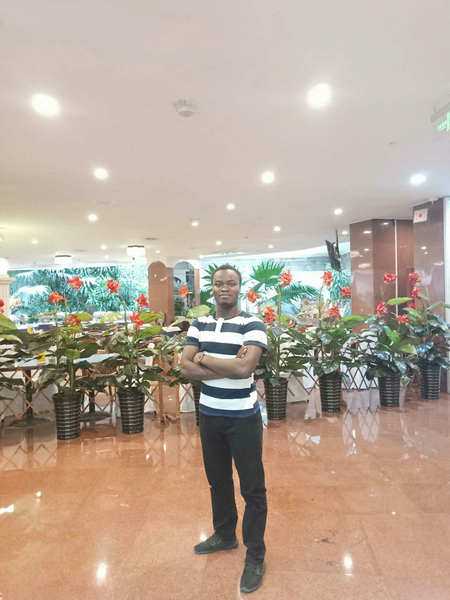 |
|
Sovi-guidi W. Lionnel Pyrrhus from the Republic of Benin. [Photo provided to China Daily] |
After living in China for a year, NourEldin has fallen in love with Chinese cuisine.
He can now cook Chinese braised eggplant, and he loves Chinese noodles, with his favorite dishes being braised beef noodles and Lanzhou ramen.
"Chinese culture made my life in Beijing more colorful and helped me to see the world from a different perspective," says NourEldin.
His interest in Chinese culture is shared by his classmates.
Kembabazi Barbara, a 21-year-old half-Chinese half-Ugandan, says the Spring Festival celebration is her favorite time of the year when all her family members sit around the table to eat.
Her Ugandan father met her mother when they were studying at Huazhong University of Science and Technology in central China's Hubei province.
"I feel close to China because of my half-Chinese identity," she says.
Every two or three years, her mother used to travel with Kembabazi to her hometown in Hubei province, visiting places like the Shennongjia Natural Reserve and the Three Gorges Dam.
The Ugandan is a tai chi fan. She learned the art from her grandfather and won the first prize for her part in a tai chi group at the Xuzhou China International Wushu Competition in May.
At the start of BIT's new semester, she was happy to pick up a weekly tai chi course.
"Chinese tai chi is famous in Uganda. It can help people maintain balance and remain tranquil in difficult situations," she says.
Kembabazi enjoys the convenience of Beijing's modern lifestyle, riding shared bikes around the campus, shopping using mobile payment apps and exploring places in the city with her smartphone.
"I want to take technology from China to Uganda and make life in Uganda more convenient," she says.
According to the Ministry of Education, 61,594 African students were on campus in Chinese universities, research institutions and other educational institutions in 2016, up 23.7 percent year on year, and representing 13.91 percent of total international students in China.